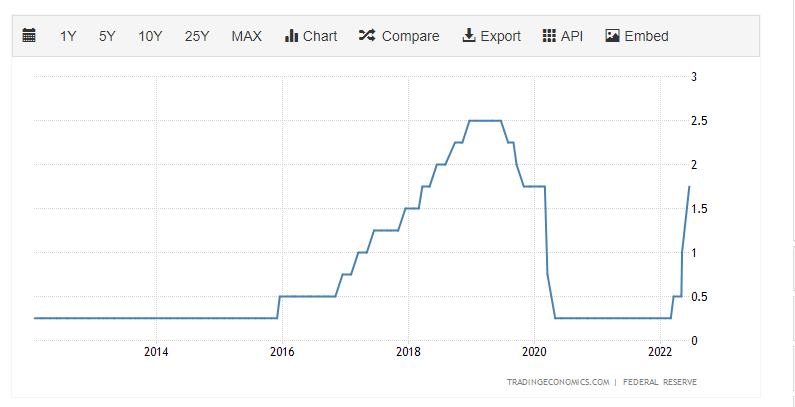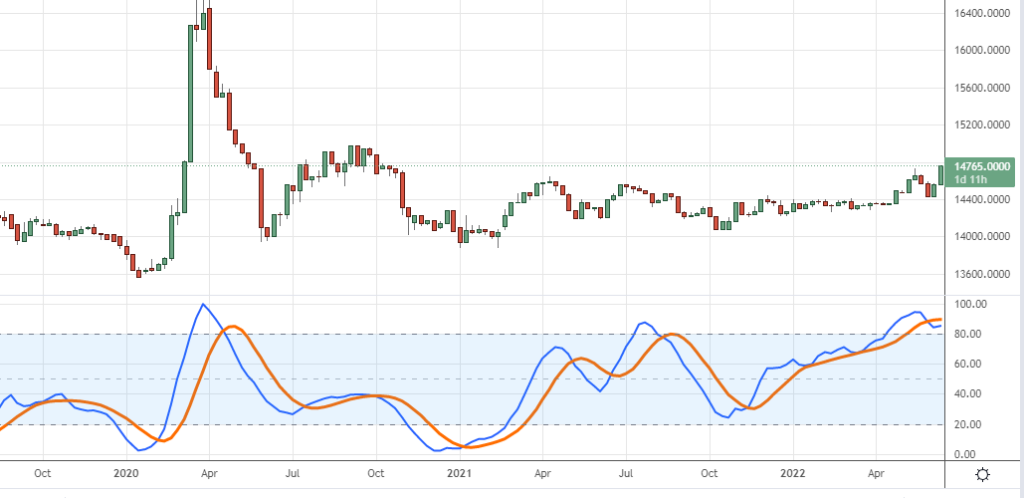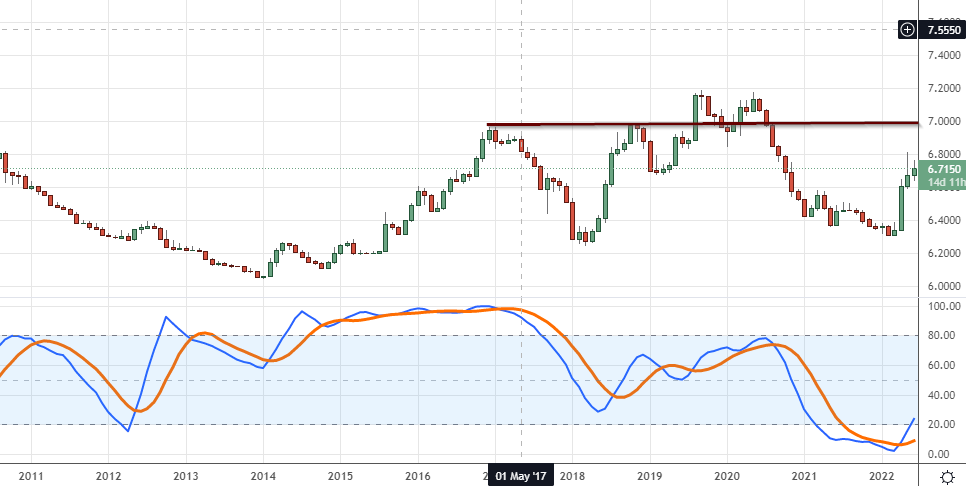
The Interplay of Geopolitical Events and Currency Markets
Updated May 2023
In the intricate web of global finance, the interconnectedness of various markets is undeniable. Geopolitical events and currency markets, in particular, wield significant influence over the dynamics of stock markets. As political landscapes shift, currencies fluctuate, and economic uncertainties arise, stock markets often find themselves caught in the crosscurrents of these forces. Understanding the intricate relationship between geopolitics, currency markets, and stock markets is crucial for investors and analysts alike.
Geopolitical Events: Catalysts of Volatility
Geopolitical events like elections, conflicts, trade disputes, and policy changes can send shockwaves through financial markets. The anticipation and aftermath of these events often introduce heightened volatility and uncertainty. Influenced by geopolitical developments, investor sentiment can impact stock markets as traders adjust their positions based on perceived risks and opportunities. The mere anticipation of geopolitical events can cause significant market fluctuations, leading to shifts in stock prices.
The Currency Market’s Ripple Effect
Currency markets are a vital link between global economies, reflecting nations’ relative strengths or weaknesses. When geopolitical events unfold, currency values can experience significant fluctuations. A sudden shift in the value of a currency can affect the competitiveness of a nation’s exports, trade balances, and overall economic outlook. These currency movements, in turn, reverberate through stock markets as multinational corporations’ earnings and international trade dynamics are influenced.
Stock Markets: Tossed by Geopolitical Waves
Stock markets are susceptible to geopolitical developments due to their influence on investor sentiment and economic outlook. Positive geopolitical developments, such as peaceful resolutions or favourable trade agreements, can boost investor confidence, driving stock prices higher. Conversely, negative events, such as geopolitical tensions, political instability, or economic crises, can lead to market sell-offs and declining stock prices. Political uncertainties can also impact specific sectors or industries, as government policies and regulations may directly impact their profitability and operations.
Analyzing Real-world Examples
To truly comprehend the impact of geopolitical events and currency markets on stock markets, it is essential to analyze real-world examples. Historical instances, such as the Brexit referendum, the U.S.-China trade war, or the global financial crisis, showcase how geopolitical shifts and currency market movements have profoundly affected stock markets worldwide. By examining these cases, we gain insights into the intricate connections between geopolitical events, currency markets, and stock market performance.
Now, let’s delve into this phenomenon and explore how geopolitical events and currency markets can shape the landscape of stock markets. By understanding the complex interplay between these factors, investors and analysts can navigate the ever-changing financial landscape with greater insight and adaptability.
Navigating Currency Markets Amidst Geopolitical Events
The world of currency markets and geopolitical events are intricately intertwined. The term “currency wars” has been used to describe the interplay between the two, often leading to unpleasant geopolitical developments. Let’s delve deeper to understand this relationship.
The Impact of Interest Rate Hikes
From 2017 to 2018, the Fed raised rates seven times, resulting in rates going from roughly zero to 2.5%. However, the Fed funds rate is below the official rate of 1.75% today. While banks can borrow below the official rate and make more money, the mortgage market is pricing higher rates to compensate for potential shortfalls. This pricing in of higher rates indicates a lack of confidence in the economy, contradicting the narrative that it is doing well.

Implications for the Future
The Fed may have to backtrack and drop rates faster than it tightened, leading to a brutal period that could be followed by an upward phase lasting three times longer. Unfortunately, most stock players may miss this cycle due to their scepticism that it is different this time. However, history has shown that while the tricks used to trigger a correction or crash may differ, the outcome remains the same. The market recovers and soars higher while the masses continue crying, cursing, and promising never to fall for the same ploy again.
The Effect on Weaker Currencies
This currency “warfare” has led to interesting geopolitical developments, particularly in previously considered weaker currencies.

Assessing Currency Performance
IDR is Holding Up Well
On March 30, 2020, the IDR traded almost to 16,800, while the high for the dollar index on that day was 102.97. This month, the high for the dollar index is 105.78, but the IDR is holding up relatively well. Compared to most Asian currencies, including the Oz dollar, Kiwi, and Yen, the IDR is faring much better, indicating the potential for a strong rally when the dollar tops towards the end of this year or early 2024. Risk-takers can consider purchasing the IDR towards the end of this year.
Vietnamese Dong and Malaysian Ringgit Showing Strength
The Vietnamese Dong is another currency showing a similar pattern, albeit not as strong as the IDR. Traders can consider going long towards the end of this year. The Malaysian Ringgit is another currency demonstrating slight strength, making it another potential currency to go long towards the end of this year.
Opportunities for Investment and Property Purchases
Vietnam would be an excellent place to consider buying property, given the Dong’s potential for a strong rally. Additionally, the Yuan demonstrates substantial strength, making it difficult to determine which currency is stronger between the IDR and Yuan. Traders should keep an eye on these currencies for potential investment opportunities.

Geopolitical Developments in Asia and the Rise of the Eurasia Corridor
Challenges in Investing in Indonesia
While the IDR is holding up relatively well, it is easier to get exposure to real estate, stocks, and currency in China than in Indonesia. However, this trend indicates a strong comeback for Asian economies, which may be due to their increasing reliance on Russia for energy supplies. As a result, the Eurasia corridor is poised to become the most potent trading block globally in the coming years.
The Silent Geopolitical Event in China
While Russia’s aggressive stance is upending the regular geopolitical order, China is another significant player that deserves attention. Despite flying under the radar, China’s increasing influence in the region and globally cannot be ignored. As more attention is focused on Russia, traders should keep an eye on China’s geopolitical developments and the potential implications for the region and beyond.
China’s Strong Words on Taiwan at the Shangri-La Dialogue
China’s defence minister Wei Fenghe issued a stern warning to those who may seek to secede Taiwan from China. Speaking at the Shangri-La Dialogue security summit, Wei stated that China would “fight at all costs and we will fight to the very end” to prevent Taiwan’s secession. He went on to emphasize the resolve and ability of the Chinese armed forces to safeguard territorial integrity.
Wei’s comments came in response to U.S. defence secretary Lloyd Austin’s remarks the previous day. In a veiled swipe at Washington, Wei accused “some country” of playing the Taiwan card against China to interfere in internal affairs. He added that “no one can stop China’s path to reunification”.
The strong words from China at the Shangri-La Dialogue highlight the tension between China and the U.S. over Taiwan. The situation remains a significant geopolitical concern, and any escalation could have far-reaching implications for the region and beyond. https://cutt.ly/QKebtCY
The Likely Takeover of Taiwan by China and Implications for the U.S.
The likelihood of China taking over Taiwan is almost certain, with only the time and method remaining unknown. It is possible that a non-lethal war could take place, with an agreement providing Taiwan with a certain degree of autonomy. However, the situation remains a significant geopolitical concern, and any escalation could have far-reaching implications for the region and beyond.
U.S.’s Need for a Strong Semiconductor Industry
Taiwan is a significant player in the semiconductor industry, and the U.S. needs to beef up its own initiative to remain competitive. Russia could take the lead without Taiwan under America’s belt, with China following closely behind. Russia is home to the world’s best hackers, which could level the playing field very quickly, coupled with their unlimited supply of chips and current “us against them” mindset. The U.S. needs to act fast to maintain its position in the industry.
Potential Implications
The loss of Taiwan would significantly blow the U.S.’s position worldwide, particularly in artificial intelligence, where it could drop from number one to number three or four quickly. This development could have far-reaching implications for the U.S.’s standing and relations with Russia and China. The U.S. must act fast to maintain its position and competitiveness.
Originally published on 27th July 2022 and updated in May 2023.










